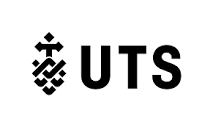This design thinking course will equip you with the skills and confidence to turn good ideas into sustainable and improved outcomes with users/customers at the heart of your thinking and implementation.

Forward thinking practitioners and workplaces utilise innovative ways of designing and applying solutions through human centred strategy, policy, plans and initiatives.
This design thinking course will equip you with the skills and confidence to turn good ideas into sustainable and improved outcomes with users/customers at the heart of your thinking and implementation.
You will learn foundational design thinking skills from expert practitioners to introduce new ways of working across your teams and organisations, generate more creative and relevant solutions, and make better strategic decisions.
You will be able to apply design thinking methodology to real world challenges and gain an invaluable understanding of delivering better outcomes and/or services in co-creation with your communities, customers and stakeholders.
Who we are
UTS is a public university of technology defined by our support for the economic, social and cultural prosperity of our communities. We are measured by the success of our students, staff and partners and committed to research, innovation and the dissemination of knowledge of public value. We are, and always will be, an inclusive university.
UTS has a culturally diverse campus life and vibrant international exchange study and research programs that prepare graduates for the workplaces of today and the future. Our campus is in the heart of Sydney's creative and digital precinct and alongside Sydney's central business district.
Continuing a 10-year period of major development, the ongoing transformation of the UTS campus will ensure we continue to maintain and develop a purpose- and sustainably-built campus to support innovation in education and research.
Our UTS 2027 strategy outlines our vision to be “a leading public university of technology recognised for our global impact” . Our purpose is to advance knowledge and learning through research-inspired teaching, research with impact and partnerships with industry, the professions and community.
UTS is part of the Australian Technology Network of universities: a group of prominent universities committed to working with industry and government to deliver practical and professional courses.
With a total enrolment of over 44,000 students, UTS is one of the largest universities in Australia.
What we do
UTS offers over 130 undergraduate and 210 postgraduate courses across traditional and emerging disciplines such as architecture, built environment, business, communication, design, education, engineering, information technology, international studies, law, midwifery, nursing, pharmacy and science.
In line with the UTS model of global practice-oriented learning, many of our students undertake professional practice during their degree. As part of their degree program, students also have the opportunity to study at one of more than 185 universities in about 40 countries with which UTS has exchange agreements.
Our world leading research centres span a range of disciplines, including physical, biological and engineering sciences, and contemporary fields such as design, nanotechnology and sustainability.
Our researchers provide practical and relevant solutions to issues of national and international importance and equip graduates with the latest discipline specific skills and practices.
We also maintain strong relationships with the local community, industry, business and the professions through a wide range of partnerships, projects and events.
As a public purpose institution, UTS is committed to supporting positive social change within and beyond our campus. This commitment is reflected by a diverse set of institution wide social justice initiatives that have only expanded in scope and impact since UTS was established.
Student-based programs, focused research and innovative teaching approaches aim to create a more just and equitable world.
Our history
On 26 January 1988 — with the commencement of the University of Technology, Sydney, Act — the former New South Wales Institute of Technology became the University of Technology, Sydney.
The New South Wales Institute of Technology was established in 1964. The School of Design of the former Sydney College of the Arts was incorporated into the Institute on 25 January 1988.
On 1 January 1990, the Institute of Technical and Adult Teacher Education and the Kuring-gai College of Advanced Education were amalgamated with the existing University of Technology, Sydney to form the current UTS. On 1 August 2015, the comma was removed from the University’s title to become the current University of Technology Sydney.
The purpose and functions of UTS are outlined in the University of Technology Sydney Act 1989 (NSW) and in the constitutions of its controlled entities.
© 2025 coursetakers.com All Rights Reserved. Terms and Conditions of use | Privacy Policy